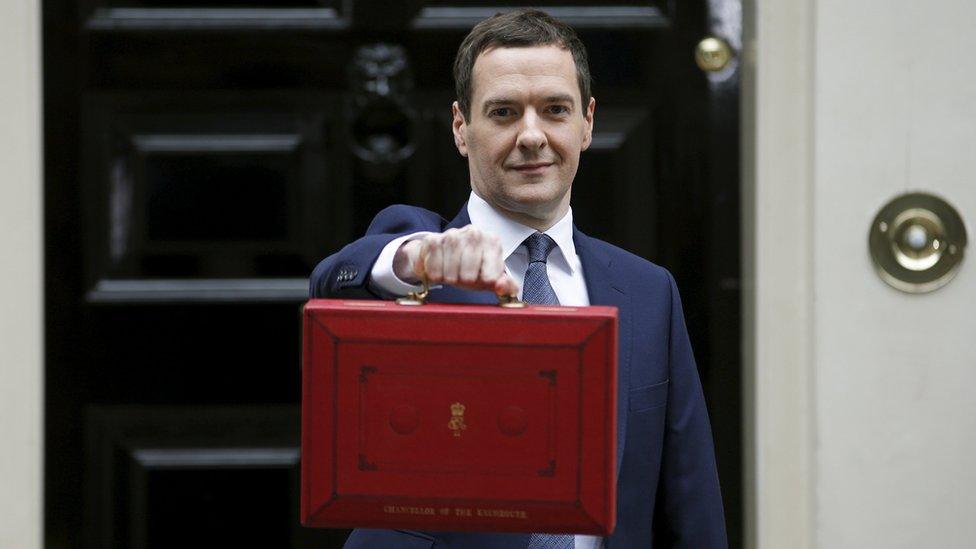What does it mean to be an academy school?
- Published

Primary schools have been slower than secondaries to convert to academy status
What are academies, how are they different from mainstream schools and why is the government so keen on them? BBC News website answers the key questions.

What is an academy?
Academies are independent, state-funded schools, which receive their funding directly from central government, rather than through a local authority.
The day-to-day running of the school is with the head teacher or principal, but they are overseen by individual charitable bodies called academy trusts and may be part of an academy chain.
These trusts and chains provide advice, support, expertise and a strategic overview.
They control their own admissions process and have more freedom than other schools to innovate.

How many are there?
Currently, 2,075 out of 3,381 secondary schools are academies, while 2,440 of 16,766 primary schools have academy status.
The number grew dramatically under the coalition government, from 203 in May 2010, and has continued under the present Conservative government.

Weren't academies all about improving failing schools?
They were once. The policy, which originated under Labour, aimed to improve struggling schools, primarily in deprived areas.
And this continues under the sponsored-academy model, where failing schools are taken over and run by an academy trust.
But it has changed radically to embrace all types of schools - successful or otherwise.
All schools - primary as well as secondary - have been invited to convert to academy status, with priority being given to the best performers.

What is the future of "academisation"?
In the last Budget, Chancellor George Osborne announced a forced academisation plan, under which all schools in England would either have to convert to academies by 2020 or be committed to converting by 2022.
This would have, in effect, ended the link between local authorities and schools that began in 1902.
However, the plans aroused strong criticism from teaching unions and others, including Conservative MPs and councillors, and have now been abandoned.
Ministers say the "goal" of academising all schools remains but attention will now focus on schools that are "clearly failing". Labour called it a "humiliating climbdown".

What are the benefits of academy status?
The government argues academies drive up standards by putting more power in the hands of head teachers over pay, length of the school day and term times.
They have more freedom to innovate and can opt out of the national curriculum.
It says they have been shown to improve twice as fast as other state schools. Others dispute that.
In the past, they have received £25,000 conversion costs from the Department for Education, and have topped up their budgets by as much as 10%, receiving funds for support services that used to go to the local council.

Sir Michael Wilshaw said too much was being spent by academy chains on consultants

What do critics say?
A series of MPs' committees have criticised the academies programme for a lack of oversight, in terms of finances and public accountability.
Teaching unions have long argued that academisation has been used as a way of privatising the school system, while the government says it is about introducing innovation.
Now private providers run large "chains" of schools, and some of these grew very fast - taking on more schools than they could cope with.
This led to some of the largest chains being stopped from taking on any more schools.
Recently, the Ofsted chief Sir Michael Wilshaw criticised seven sizeable academy chains for failing to improve the results of too many pupils in their schools, while paying board members large salaries.
But he also acknowledged that great progress has been seen in many academies.

Who oversees academies?
Academies, like all schools, are inspected by Ofsted, but because of changes to the inspection regime, those classed outstanding are no longer routinely inspected.
Regional School Commissioners were introduced in 2014 to approve academy conversions and monitor standards at academies and free schools in their areas.
There are eight regional commissioners, who each work with a small board of head teachers. They cover quite a large geographical area and act on behalf of the Secretary of State for Education.
For example, 25 local authority areas are covered by the Regional School Commissioner for Lancashire and West Yorkshire.
If all schools become academies, it will mean each regional commissioner over-seeing thousands of them.

How about the rest of the UK?
Plans announced by ministers in Westminster do not apply to Scotland, Wales and Northern Ireland, where education policy is devolved, and where academies do not exist.
In Wales, school governing bodies set their own start and finish times - although local authorities can override them.
In Northern Ireland, the law states that the school day must be at least three hours for pupils under eight, and four and a half hours for pupils over eight.
In Scotland, education authorities set hours, but the school week is commonly 25 hours for primary schools and 27.5 hours for secondary schools. Scottish councils were banned from cutting the length of the school day to save money in December.
- Published16 March 2016

- Published16 March 2016
